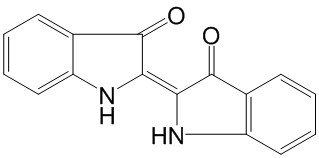Home
Products
Betulinic acid



| Product Name | Betulinic acid |
| Price: | $15 / 20mg |
| Catalog No.: | CN07926 |
| CAS No.: | 472-15-1 |
| Molecular Formula: | C30H48O3 |
| Molecular Weight: | 456.7 g/mol |
| Purity: | >=98% |
| Type of Compound: | Triterpenoids |
| Physical Desc.: | Powder |
| Source: | The herbs of Ziziphus jujuba. |
| Solvent: | Chloroform, Dichloromethane, Ethyl Acetate, DMSO, Acetone, etc. |
| SMILES: | CC(=C)[C@@H]1CC[C@]2([C@H]1[C@H]1CC[C@H]3[C@@]([C@]1(C)CC2)(C)CC[C@@H]1[C@]3(C)CC[C@@H](C1(C)C)O)C(=O)O |
| Contact us | |
|---|---|
| First Name: | |
| Last Name: | |
| E-mail: | |
| Question: | |
| Description | Betulinic acid is a natural pentacyclic triterpenoid, acts as a eukaryotic topoisomerase I inhibitor, with an IC50 of 5 μM, and possesses anti-HIV, anti-malarial, anti-inflammatory and anti-tumor properties. |
| Target | Topoisomerase I:5 μM (IC50) HIV-1:1.4 μM (EC50) |
| In Vitro | Betulinic acid is a eukaryotic topoisomerase I inhibitor, with an IC50 of 5 μM, and prevents topoisomerase I-DNA interaction[1]. Betulinic acid (10, 20, 40, 80, and 160 µM) significantly suppresses MDA-MB-231 cell viability in a time- and dose-dependent manner after treatment for 24 or 48 h. Betulinic acid (20, 40 µM) causes decrease in Bcl-2 expression of MDA-MB-231 cells. Betulinic acid also induces morphological changes of MDA-MB-231 cells at 20 µM, and leads to ultrastructure changes of MDA-MB-231 cells at 40 µM[2]. Betulinic acid shows anti-HIV activities, with an EC50 of 1.4 µM in acutely infected H9 lymphocytes[4]. |
| In Vivo | Betulinic acid (10 and 30 mg/kg, p.o.) significantly abrogates colon shortening, and reduces malondialdehyde (MDA) and lipid hydroperoxide levels in dextran sulfate sodium (DSS)-induced colitis in mice. Betulinic acid (30 mg/kg, p.o.) restores superoxide dismutase (SOD), catalase activity and glutathione (GSH) content to control levels in DSS-induced colitis in mice. Betulinic acid (30 mg/kg, p.o.) also inhibits the DSS-induced increase in inflammatory markers. Betulinic acid (3, 10, 30 mg/kg, p.o.) suppresses acetic acid-induced writhing responses and mustard oil (MO)-induced visceral nociception in mice[3]. |
| Cell Assay | CCK-8 is used in the assay. MDA-MB-231 cells are cultured in 96-well plates at a density of 2 × 103 cells/well and then treated with DMSO vehicle or various concentrations of Betulinic acid ranging from 5 µM to 160 µM in 100 µL of medium for the indicated times. After the treatment period, the medium in each well is replaced with 110 µL of medium containing 10 µL of the CCK-8 mixture, and the plates are incubated for 1 h and 30 min at 37°C. The absorbance at a wavelength of 450 nm is measured with a microplate reader[2]. |
| Animal Admin | Female Swiss albino mice are administered vehicle (5% v/v DMSO in peanut oil) or Betulinic acid (3, 10 or 30 mg/kg) in vehicle, orally. After 1 h, acetic acid (300 mg/kg) is administered by intraperitoneal route and number of writhing response of each animal is counted for 20 min by an observer who is blind to the treatments. Writhing response is when animal rubs its abdomen on surface of table/floor with elongation of the body and extension of the hind limbs[3]. |
| Density | 1.1±0.1 g/cm3 |
| Boiling Point | 550.0±33.0 °C at 760 mmHg |
| Flash Point | 300.5±21.9 °C |
| Exact Mass | 456.360352 |
| PSA | 57.53000 |
| LogP | 8.94 |
| Vapour Pressure | 0.0±3.4 mmHg at 25°C |
| Storage condition | Store at +4°C |